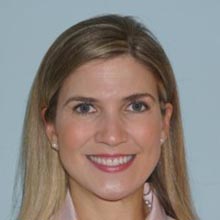Dr. Margaret Quinlan

Dr. Margaret Quinlan
Margaret M. Quinlan (Ph.D., Ohio University) is a Professor of Communication and a Core Faculty Member of the Interdisciplinary Health Psychology Ph.D. Program at the University of North Carolina at Charlotte. Dr. Quinlan is the Director of an Interdisciplinary Program, Health & Medical Humanities and received the Harshini V. de Silva Graduate Mentor Award (2023) and the Bonnie E. Cone Early Career Professorship in Teaching (2015-2018). She examines the nexus of public perceptions of medicine, science, and technology, historically and presently. She investigates the role communication plays in public understandings of medical expertise, illness, wellness, caring, treatment, health, and healing. More specifically, she explores how communication creates, resists and transforms knowledges about bodies. She critiques power structures in order to empower individuals who are marginalized inside and outside of healthcare systems. Dr. Quinlan authored approximately 40 journal articles, 17 book chapters and co-produced documentaries in a regional Emmy award-winning series (National Distribution with PBS and available on Amazon).
Dr. Quinlan has published in Health Communication, Text & Performance Quarterly, Disability Studies Quarterly, Communication Education, Women & Language, Women’s Reproductive Health, Qualitative Research in Medicine and Healthcare, International Journal of Health and Media Research, Sexuality & Culture, Journal of Research in Special Education Needs, and Journal of Holistic Nursing.
She co-authored a book with Bethany Johnson: You’re doing it wrong! Mothering, media, and medical expertise with Rutgers University Press.
You’re Doing it Wrong! investigates the storied history of expertise around mothering in the media, from the newspapers, magazines, doctors’ records and personal papers of the nineteenth century to today’s websites, Facebook groups, and Instagram feeds. Johnson and Quinlan find surprising parallels between today’s mothering experts and their Victorian counterparts, but they also explore how social media has placed unprecedented pressures on new mothers wrestling with familiar concerns and crises from pre-conception through early toddlerhood.
Education
- B.S., Marist College
- M.S., Illinois State University
- Ph.D., Ohio University
Areas of Interest
- Health, Organizational and Performative Communication
- Ethnography, Narrative/Interpretive/Rhetorical/Feminist Analyses
- Social justice issues that affect marginalized populations, including disability rights and gender inequities
- Women’s Reproductive Health
- Social Media, Medical Expertise, Motherhood
- Public Perceptions of Science, Medicine and Technology
- Intersectional Feminism
- Practitioner-patient communication
- Health crises: “Sex-selection,” infertility, infant loss, childbirth, breastfeeding, postpartum issues, premature birth, maternal mortality, and developmental milestones
- fat pregnancy
- Childcare costs
Teaching-Courses
- Communication Theory
- Interpersonal Health Communication
- Gendered Health Communication
- Visual Ethnography
- Health & Media
Faculty Affiliations
- Core Faculty, Interdisciplinary Health Psychology Ph.D. Program
- Program Director, Interdisciplinary Program, Health & Medical Humanities
- Faculty Associate, Center for Professional and Applied Ethics
- Affiliate Faculty, Public Health Sciences Ph.D. Program
- Research Affiliate, Women + Girls Research Alliance
- Affiliate Faculty, Women’s and Gender Studies
Research-Projects and Service
- The Courage of Creativity documentary series (Associate Producer)
- DooR to DooR: Bringing Inspiration and Solace Through the Arts
- Acoustics of Care
- Beautiful Remedy
- Creative Abundance
- 1 in 8: Communicating (In)fertility (draft)
- The Dancing Wheels Company & School
- Women’s Reproductive Health Consulting
- Infertility Greeting Cards (Johnson, Quinlan & Reyes) (free downloadable)
- Card 1_Infertility advice
- Card 2_Infertility sucks
- Card 3_Infertility Lists
- Card 4_Infertility Not alone